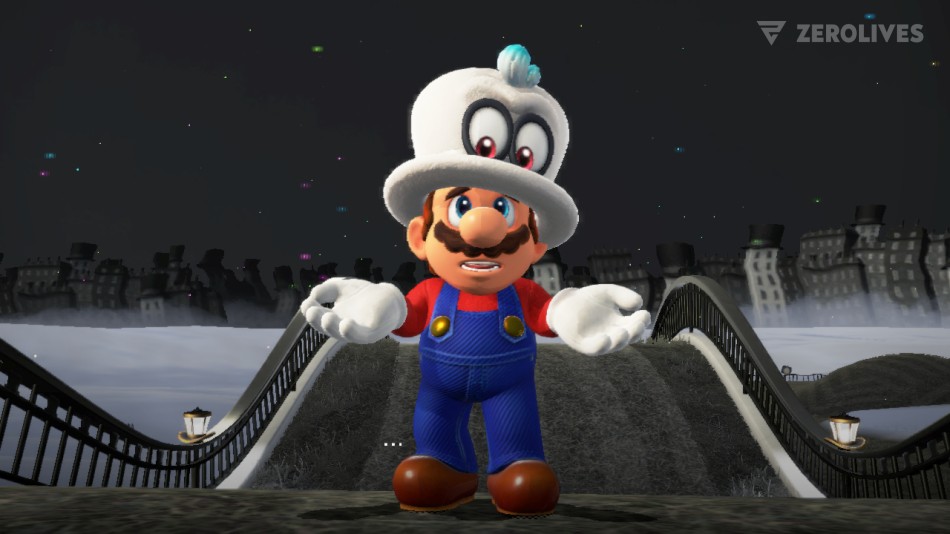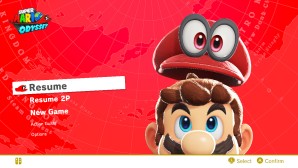This year is shaping up to be the year of emulators. Never before have there been this many high-profile emulators in the works and never before has progress been this steady and significant.
The most interesting emulators to keep an eye on right now are Yuzu, Cemu, and RPCS3. These emulate Nintendo Switch, Nintendo Wii U, and PlayStation 3 games respectively.
These three emulators are working towards an amazing legacy; never before have emulators seen such steady and significant progress. The rate at which they are improving is impressive, especially when you consider that they each have their own unique difficulties to overcome.
That isn't to say these emulators are able to perfectly emulate your favorite titles just yet, but those running high-end machines know they are getting mighty close. In this article we're taking a closer look at each of these.
Yuzu
Yuzu is perhaps the most interesting emulator to keep an eye on simply because it is able to emulate several popular Nintendo Switch titles, including Super Mario Odyssey and Arms, relatively soon after the console's March 2017 release date.
Because the Nintendo Switch only released two years ago, many games won't go past their intro or main menu just yet, but its emulation of Super Mario Odyssey shows it will only be a matter of time before they will.
Upon installation you can select either the nightly or canary distributions, the latter of which may contain features that are not thoroughly tested and thus may be unstable. The build we tested was canary 1921. It was released on February 25, 2019.
For the setup you will need valid key files in your "\AppData\Roaming\yuzu\keys\" folder. This data can be dumped from your own console by following this guide. These files are also shared on piracy websites.
While the latest build includes the highly-anticipated disk shader cache option, performance is nowhere near sufficient on average machines. Enabling the option does improve performance and reduce stutter, but you will still need an eighth or ninth generation Intel i7 CPU to really get close to playing at 60 frames per second.
If you are using an older CPU performance will be significantly worse. We tested the same setup on an i7 2600K CPU running at 4GHz and were only able to reach 15 frames per second on average. Of course, micro stuttering and frame drops are still common issues in any case.
For Odyssey in particular it doesn't help that one of the first kingdoms to clear is the Cascade Kingdom. This kingdom is notorious for having the worst performance in the emulator, although it is slowly getting better with every build.
We also tested Bayonetta 2, Arms and several others and saw similar performance across the board. That being said, out of these titles Arms is perhaps the one that is closest to perfect emulation - especially when turning disk shader cache on.
Cemu
Cemu has been around longer and has the advantage that the Nintendo Wii U IBM PowerPC architecture is similar to that of its older brother, the Nintendo Wii. This means that there are many similarities between the two consoles. Having the source code of the existing Nintendo Wii emulator Dolphin available of course helped jump start this emulator.
The emulator is able to run many popular Nintendo Wii U games, including the recently released zelda game The Legend of Zelda: Breath of the Wild. If you are running a high-end machine you will be able to play this game without any significant issues. Many are even able to increase the game's native resolution to 4K and still play at 60 frames per second on average.
The build we tested was 1.15.2d. It was released on February 5, 2019.
For the setup you will need game decryption keys to open their archives. These keys can be appended to a text file that is created in the root folder after running the software for the first time. Keys can be dumped from your own console by following this guide. These keys are also shared on piracy websites.
The most obvious title to test was The Legend of Zelda: Breath of the Wild. On an i7 8700K the game can easily run at 60 frames per second on average without any significant tweaks. On an i7 2600K we needed a whole slew of tweaks to get an enjoyable experience, including several graphics packs that both increase resolution and improve frame rates and the additional plugin Cemu Hook.
Those who are able to run the game in 4K resolution will know that playing the game this way is much more pleasing to the eye. On the Nintendo Wii U, the original game is limited to just 720P resolution with dynamic downscaling to 648P. These numbers make playing the game on Cemu seem like a real no-brainer.
We also tested Donkey Kong: Tropical Freeze and Mario Kart 8. Both of these titles worked fine right out the box, but additional tweaks can still make a difference depending on your hardware.
RPCS3
PlayStation 3 emulator RPCS3 has only recently seen significant performance improvements. The emulator project started in 2011 but it wasn't until recently that it gained popularity due to its improved compatibility. Despite these improvements, the emulator still seems to have a long road ahead.
The build we tested was v0.0.6-7809 Alpha. It was released on February 23, 2019.
For the setup you will need the software and a PlayStation 3 firmware. The firmware is available for download on Sony's own website.
We tested Red Dead Redemption, Skate 3 and Uncharted: Drake's Fortune and got mixed results.
The most exciting out of these three titles was Skate 3 because it ran surprisingly well at 30 frames per second on average on an i7 8700K. Red Dead Redemption and Uncharted: Drake's Fortune ran significantly worse at 15 frames per second on average. Micro stuttering and graphical glitches are not uncommon and are to be expected.
The same test setup on an i7 2600K gave even worse results: anywhere between 0 and 10 frames per second for both of these titles.
However, recent performance reports from the development team show the emulator is steadily improving. An update from last August doubled the frame rate of Uncharted: Drake's Fortune, which in itself is no small technical feat. It also implemented Vulkan support last year.
The battle for CPU cycles
It comes as no surprise that all emulators are stuck in a never-ending battle for CPU cycles. The higher your CPU clock speed is, the easier it will be to emulate graphically demanding games. In addition, newer generation CPUs are generally more efficient, even if their respective clock speeds are the same. That is why an eighth generation CPU will be significantly better than a second generation CPU.
The three emulators mention in this article have all reached a critical point where they can start chipping away until they require significantly fewer cycles to render each frame. However, none of these are really there yet, despite claims from random YouTubers, streamers and websites stating otherwise.
As these emulators improve, the necessary clock speeds will gradually decrease. One day these will all deliver a silky smooth 60 frames per second experience on a wide range of hardware - and that day is fast-approaching.


























Comments